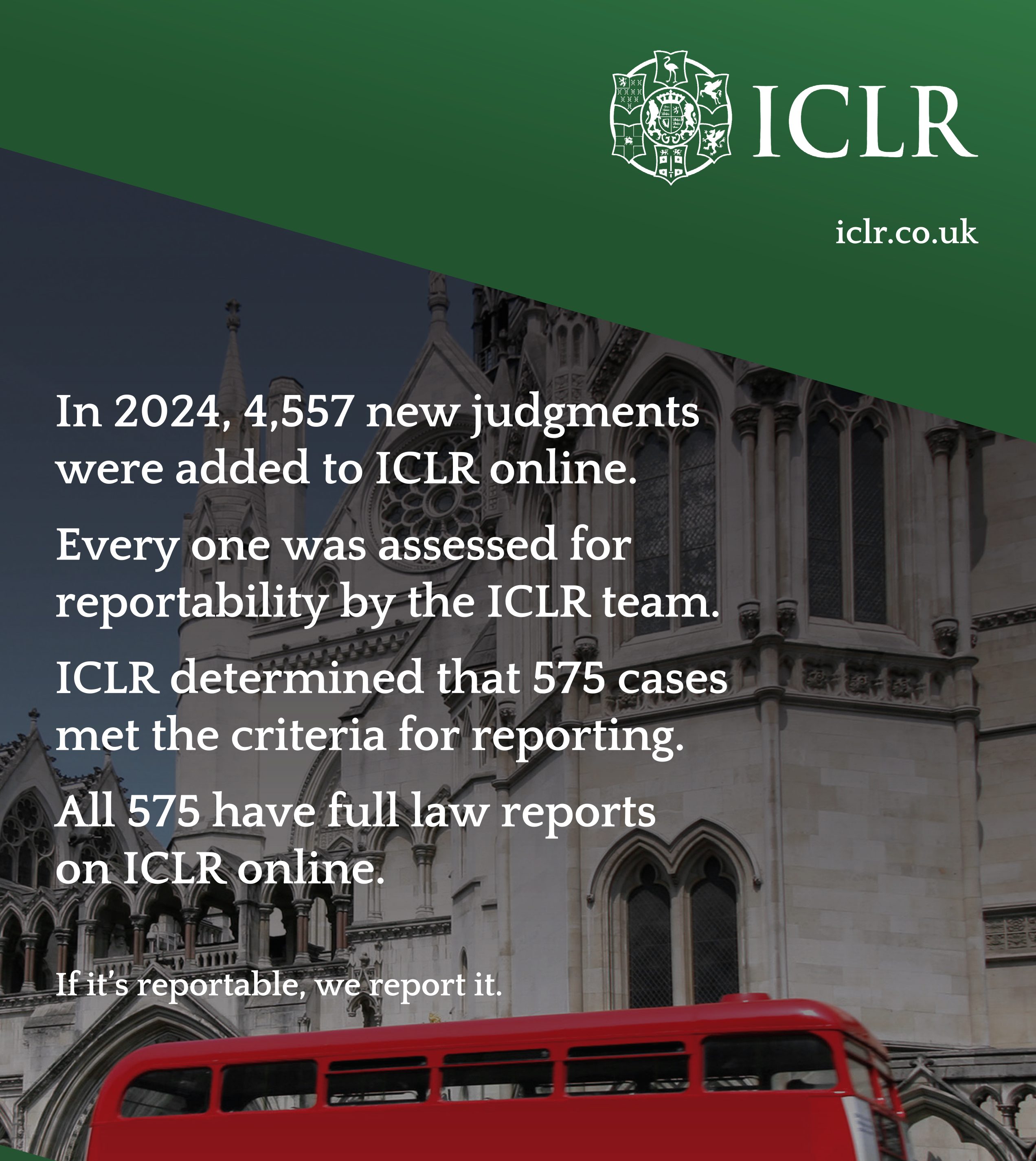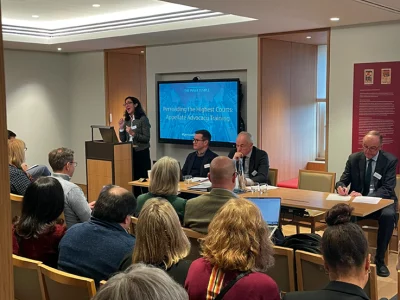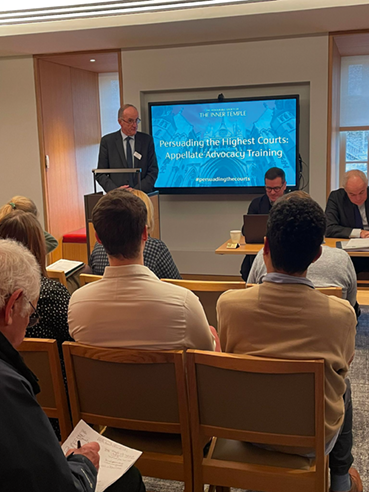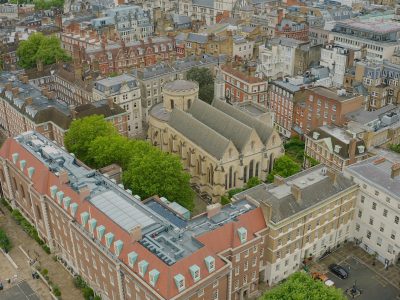
ICLR
If it's reportable, we report it.

By Master Craig Hassall, Master Anthony Leonard and Tom Lazur. Appellate Advocacy Training, 23 November 2024.
Any barrister who has appeared in an appellate court would acknowledge that appellate advocacy is fundamentally different to advocacy at first instance. The art of persuading the appellate court that something went sufficiently wrong at first instance to justify overturning the original result is quite different to how we argue before a judge or a jury in the court below. The procedural rules are necessarily different and so are the powers of the appellate courts to remedy what they decide went wrong.
Notwithstanding those fundamental differences, little specialist training has been available in this area. Because the Inns are only required to train barristers of up to four years’ Call, and with such little time available to do so, training has to be focused on key trial and application skills because that is what advocates need to be able to do at the start of their careers.
The Education and Training Department is now expanding the training they provide to encompass skills which established practitioners need to learn or have refreshed. As part of an expanded Established Practitioners’ Programme, on 23 November 2024, the Inn organised and hosted a one-day appellate advocacy training course. We were fortunate to be able to call on a wealth of talent from our members to assist with the training.

ICLR
If it's reportable, we report it.
Trusted law reporting since 1865
Master Sue Carr gave an introductory welcome speech, highlighting the need for a different approach to advocacy in appellate cases and what can go wrong when no such approach is taken. She emphasised the need to get straight to why the submission is important and correct. The work of the Court of Appeal is conducted under constant and immense pressure of time which leads the judges to ask themselves “What is the point?”, closely followed by “Why is it a good point?”. She explained that there is always the risk that a potentially good point is missed because it is hidden away in long-winded narrative about the facts of the original trial.
Master Anthony Hughes gave the keynote address in the form of a perspective from the Supreme Court. He provided fascinating insights into the internal workings of the highest of our domestic courts, reminding delegates of that which advocates before the Supreme Court might forget at their peril: Supreme Courts Justices might be inexperienced in a particular area of law, but they are not unintelligent.
Delegates were then given the option of a series of talks in the two broad practice areas covered by the civil and criminal divisions of the Court of Appeal. Each group received advice from a practitioner specialising in appellate work and from two judges of the Court of Appeal.
In relation to the Civil Division, Master Teertha Gupta entertained with lessons from his extensive appellate advocacy experience, highlighting the need to look at the issues from all possible angles so you can prepare yourself as best as possible for the inquisition to come. Master Nicholas Green and Master Andrew Popplewell lifted the veil on the way the Court of Appeal approaches its work, often considering points of appeal over many months before the hearing so that they have a clear agenda for the hearing itself. Both pleaded for brevity in written submissions and preferred advocates who are willing to engage with the Court’s agenda over those who stick rigidly to a script.
Meanwhile, Farrhat Arshad KC provided criminal practitioners with a seven-point plan of attack for bringing a criminal appeal, which included insider knowledge on maintaining a good working relationship with not only the Court itself but also with its Registrar and their Office. Further behind-the-scenes insights into the approach of the Criminal Division were provided by Master James Dingemans on written advocacy and the late Master Bill Davis who focused on oral advocacy. Together, they provided an invaluable account of how judges in the criminal division approach the task of deciding appeals, how a winning point can be identified and developed, and conversely how a potentially winning point can be hidden amongst the irrelevant and thereby lost.
The afternoon was devoted to appellate advocacy training exercises in civil or criminal appeals.
Each exercise provided delegates with the opportunity to receive structured feedback on their appellate advocacy from the Inn’s accredited advocacy trainers in a mock appeal presided over by Master of the Bench, each of whom is a High Court Judge. Advocates from a few years’ call to those in silk took part.

The criminal advocacy exercise, written by Master Anthony Leonard, was based on the recently promulgated Private Members’ Bill on joint participation together with the admissibility of bad character evidence as it related to a multi-handed murder trial.
The civil advocacy exercise, written by Tom Lazur, considered the application of an agreement to exclude consequential losses after an agent failed to supply concert tickets to a popular social media influencer.
Each exercise provided delegates with the opportunity to receive structured feedback on their appellate advocacy from the Inn’s accredited advocacy trainers in a mock appeal presided over by Master of the Bench, each of whom is a High Court Judge. Advocates from a few years’ call to those in silk took part.
The training day provided a rare opportunity for practitioners from all four Inns to receive guidance about the particular craft of appellate advocacy from those who hear submissions from the Bar on a daily basis. The day’s success highlights, again, the Inn’s position as a leading provider of advocacy training of the highest calibre. The day attracted excellent feedback from delegates, many asking for more of the same, resulting in the intention to repeat the appellate course regularly and to expand into other areas where there is a demand for advanced training.
Craig Hassall KC
Park Square Barristers
Advocacy Training Committee
His Honour Judge Anthony Leonard KC
Senior Circuit Judge, Central Criminal Court
Advocacy Training Committee
Tom Lazur
Keating Chambers
